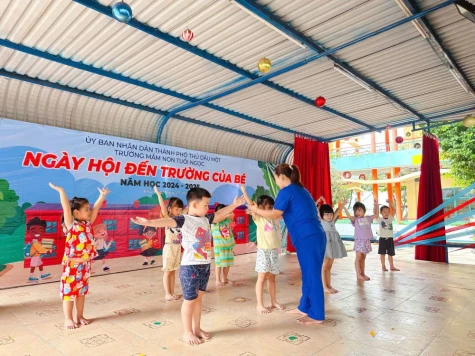In recent years, Binh Duong has not only worked to implement the province's poverty reduction policies, but has also prioritized vocational training to create stable jobs for rural workers, ensuring that they do not fall back into poverty. As part of the National Target Program on Sustainable Poverty Reduction for the 2023-2025 period, Binh Duong aims to reduce the number of poor households in the area to less than 1% this year.
sss.jpg)
Concentrate resources on poverty reduction
By the end of 2024, Binh Duong had 4,306 poor households/404,832 households, accounting for 1.06%. Up to now, the implementation of the National Target Program on Sustainable Poverty Reduction for the 2023-2025 period in the province has achieved the set results.
The key to helping poor households escape poverty quickly and sustainably is to focus resources on building houses for the underprivileged through programs such as solidarity housing, charity homes, Red Cross initiatives, and trade union shelters using socialized resources. A notable example is Mr. Nguyen Van Nien’s family from Dinh An commune in Dau Tieng district, who were classified as a poor household. In October 2024, they received a house valued at over 100 million VND from local socialized sources. With stable housing, families like Mr. Nien's have gained motivation and the means to rise out of poverty more effectively. “Not only am I excited, but my children are also more motivated to take care of their business and save up for more valuable household items. Since we got our house, our family life has improved every day,” said Mr. Nien.
Mr. Pham Van Tuyen, the Deputy Director of the Provincial Department of Home Affairs, reported that from 2021 to the present, vocational training institutions in the province have provided training to 170,000 students. Notably, the employment rate for graduates after training exceeds 90%. The department, along with localities, offers short-term training programs in several high-demand fields, including plant care, animal husbandry, beauty, cooking, haircutting, and various types of driving... |
To help poor households quickly stabilize their lives, on average each year, agencies, organizations, businesses and localities in the province focus on building and donating about 100 houses from various sources. Along with that, tens of billions of Dong were mobilized to support tuition fees and award scholarships to children of poor households. The poor also have access to free medical services through programs that give away health insurance cards and books, supported by local medical facilities.
Meanwhile, the program aimed at supporting loans to help poor households create livelihoods and develop their economy has proven to be highly effective. Over the past three years, Provincial Social Policy Bank has disbursed hundreds of billions of VND at low interest rates, which has enabled thousands of households to secure stable employment. A notable example is the family of Ms. Pham Thi Tinh, who lives in An Dien Ward, Ben Cat City. Two years ago, her family was considered poor in the community. With a loan of 50 million VND, they started cultivating cucumbers and other vegetables, which has provided them with a steady income and allowed them to save for a new house. Similarly, Mrs. Bui Thi Anh Nhi's family in My Phuoc Ward utilized a preferential loan to start a grocery business, enabling them to send their two children to university.
Additionally, localities in the province have implemented numerous other effective poverty reduction models. These initiatives include mobilizing social resources to provide gifts and essentials, visiting the sick, offering monthly financial support, and opening "Zero-Dong" markets, which supply regular necessities for poor households across districts, towns, and cities.

Increase employment for rural workers
One effective poverty reduction policy in the province is the exemption of tuition fees for children from low-income families attending vocational training classes. This initiative aims to create jobs and ensure stable incomes. Mr. Pham Van Tuyen, Deputy Director of the Provincial Department of Home Affairs, stated: “The Department directs vocational schools to select occupations that align with local business needs and conditions for training. We also focus on teaching fundamental skills that farmers can immediately apply in their production efforts. From 2021 to the present, vocational training institutions have trained 170,000 students, and over 90% of them have found employment after completing their training."
According to Mr. Pham Van Tuyen, the industries and professions that the department and localities prioritize for short-term training—due to their high efficiency—include plant care, animal husbandry, beauty services, cooking, haircutting, and various types of driving. After only a few months of vocational training, the localities partner with job creation loan programs to help individuals start their businesses or secure employment in enterprises, allowing them to achieve immediate income. Additionally, the department works to mobilize local support for crops and livestock for poor households, helping them develop their economies...
Ms. Doan Thi Suong, who lives in Cau Sat hamlet, Lai Hung commune, Bau Bang district, shared her story: "In the past, I didn't have a stable job, which forced me to do whatever tasks were available, leading to an unstable income. Two years ago, I decided to take a bold step and signed up for a makeup class organized by the local community. After completing the course, I opened a shop at home, which has since provided me with a steady income. Throughout my career, I am willing to share my experiences with children in the area if they need guidance." Recently, many individuals in the community have followed suit by investing in small restaurants after participating in short-term vocational classes, resulting in the creation of stable jobs for local workers.
To establish stable employment opportunities for all workers, particularly those in rural areas, the Provincial Department of Home Affairs collaborates annually with local communities and businesses to organize job fairs in various locations. This initiative serves as a vital link between job supply and demand, ensuring that there are no idle or unemployed individuals. As a result, it creates a sustainable source of income and helps lift people out of poverty.
The province's National Target Program on Sustainable Poverty Reduction for the 2023-2025 period ensures that 100% of workers from poor, near-poor, and newly escaped-poverty households who need to find jobs are supported with connection, counseling, career orientation, labor market information, and job search support; 100% of people from poor, near-poor, and newly escaped-poverty households are supported to buy health insurance. Reduce at least 50% of malnourished children under 16 years old in poor, near-poor, and newly escaped-poverty households. Reduce the rate of school attendance deficit of children from poor and near-poor households from 2.3% to 1.2%. 100% of workers from poor and near-poor households, households that have escaped poverty, and low-income workers in need will receive support to learn appropriate vocational skills. Reduce at least 50% of poor and near-poor households lacking access to information using telecommunications and internet services... |
Reported by Quang Tam - Translated by Ngoc Huynh

























